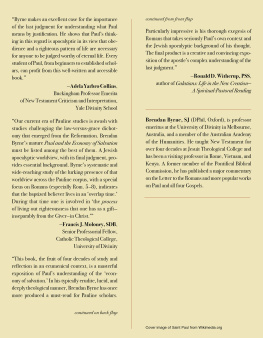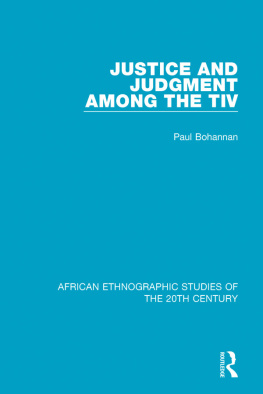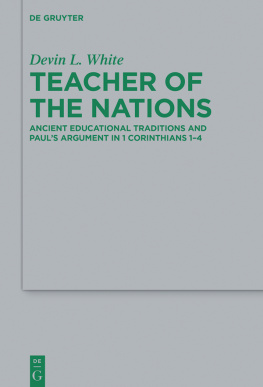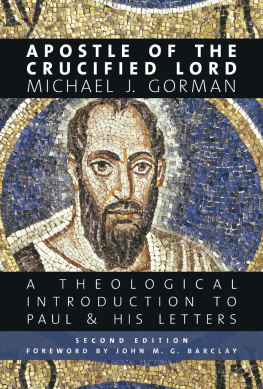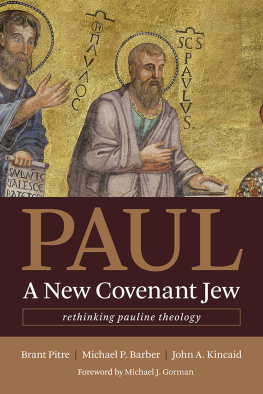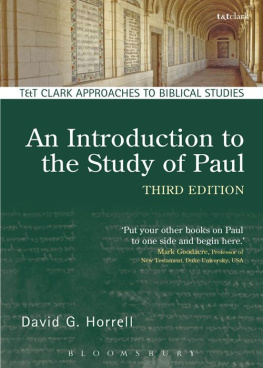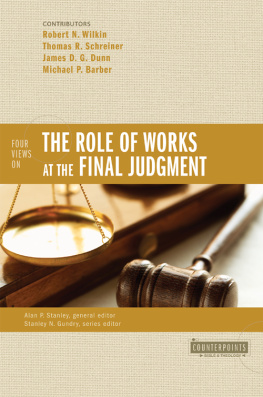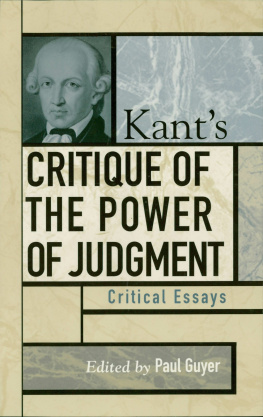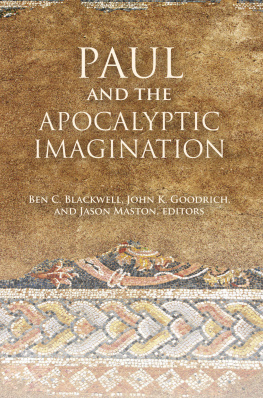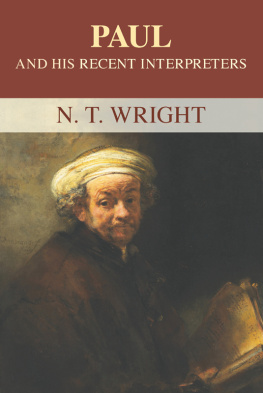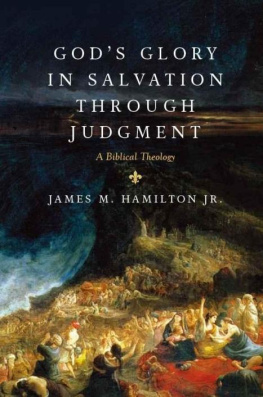Byrne - Paul and the Economy of Salvation: Reading from the Perspective of the Last Judgment
Here you can read online Byrne - Paul and the Economy of Salvation: Reading from the Perspective of the Last Judgment full text of the book (entire story) in english for free. Download pdf and epub, get meaning, cover and reviews about this ebook. year: 2021, publisher: Baker Publishing Group, genre: Religion. Description of the work, (preface) as well as reviews are available. Best literature library LitArk.com created for fans of good reading and offers a wide selection of genres:
Romance novel
Science fiction
Adventure
Detective
Science
History
Home and family
Prose
Art
Politics
Computer
Non-fiction
Religion
Business
Children
Humor
Choose a favorite category and find really read worthwhile books. Enjoy immersion in the world of imagination, feel the emotions of the characters or learn something new for yourself, make an fascinating discovery.
Paul and the Economy of Salvation: Reading from the Perspective of the Last Judgment: summary, description and annotation
We offer to read an annotation, description, summary or preface (depends on what the author of the book "Paul and the Economy of Salvation: Reading from the Perspective of the Last Judgment" wrote himself). If you haven't found the necessary information about the book — write in the comments, we will try to find it.
Byrne: author's other books
Who wrote Paul and the Economy of Salvation: Reading from the Perspective of the Last Judgment? Find out the surname, the name of the author of the book and a list of all author's works by series.
Paul and the Economy of Salvation: Reading from the Perspective of the Last Judgment — read online for free the complete book (whole text) full work
Below is the text of the book, divided by pages. System saving the place of the last page read, allows you to conveniently read the book "Paul and the Economy of Salvation: Reading from the Perspective of the Last Judgment" online for free, without having to search again every time where you left off. Put a bookmark, and you can go to the page where you finished reading at any time.
Font size:
Interval:
Bookmark:
2021 by Brendan Byrne
Published by Baker Academic
a division of Baker Publishing Group
PO Box 6287, Grand Rapids, MI 49516-6287
www.bakeracademic.com
Ebook edition created 2021
All rights reserved. No part of this publication may be reproduced, stored in a retrieval system, or transmitted in any form or by any meansfor example, electronic, photocopy, recordingwithout the prior written permission of the publisher. The only exception is brief quotations in printed reviews.
ISBN 978-1-4934-3067-3
Library of Congress Cataloging-in-Publication Data is on file at the Library of Congress, Washington, DC.
Unless otherwise noted, Scripture translations are the authors own.
Scripture quotations labeled JB are from THE JERUSALEM BIBLE, copyright 1966 by Darton, Longman & Todd, Ltd. and Doubleday, a division of Random House, Inc. Reprinted by permission.
Scripture quotations labeled NABRE are from the New American Bible, revised edition 2010, 1991, 1986, 1970 Confraternity of Christian Doctrine, Washington, DC, and are used by permission of the copyright owner. All rights reserved. No part of the New American Bible may be reproduced in any form without permission in writing from the copyright owner.
Scripture quotations labeled NIV are from THE HOLY BIBLE, NEW INTERNATIONAL VERSION, NIV Copyright 1973, 1978, 1984, 2011 by Biblica, Inc. Used by permission. All rights reserved worldwide.
Scripture quotations labeled NRSV are from the New Revised Standard Version of the Bible, copyright 1989 National Council of the Churches of Christ in the United States of America. Used by permission. All rights reserved.
Ad Maiorem Dei Gloriam
Contents
Preface
T his work draws together four decades of study, teaching, and research on the writings of Paul the apostle. The question that emerged for me from my first engagement with Paul concerned how he understood the death of Jesus to be salvific for other human beings. What was the connection? In the 1970s I went to Oxford to pursue this issue under the able direction of Morna D. Hooker, later Lady Margarets Professor at the University of Cambridge. What drew me from my antipodean locale were her early writing on the motif of interchange in Christ and Pauls view of Christ as the last Adam. In the event, my doctoral research on Paul went in a different direction. However, the original question has not ceased to accompany my reflection and teaching in the years since. The present work represents an attempt to draw together some conclusions on this matter, while necessarily placing Pauls understanding of Christs death within the wider context of other significant trajectories of his theology.
My academic study of Paul was preceded by an MA at Melbourne University devoted to building and temple imagery in the Dead Sea Scrolls. Later, I spent a semester away from Oxford in the library of the Pontifical Biblical Institute, Rome, immersing myself in the biblical and postbiblical apocalyptic literature of Second Temple Judaism. My study in both these areas led to a firm conviction that apocalyptic Judaism formed the essential background for understanding Paul and the theology to be culled from his letters. Within that wider conviction, I have become further convinced of the role played by the apocalyptic motif of the last judgment in his theology and commitment to the proclamation of the gospel. Topics in Christian theology that have traditionally owed much to Paul, such as justification and redemption, have to be understood, at least as regards their origins, within the pressing horizon of the last judgment.
More particularly, I have continued to find in Paul, especially in the sequence comprising chapters 58 of Romans, a causal connection between the way believers live out the righteous status they have received on the basis of faith and their receiving a positive verdict at the judgment. Traditional Protestant interpretation of Paul has always experienced difficulty in this area. I hope to show, however, that, rightly understood, recognizing that human living in the power of the Spirit really does contribute to the gaining of salvation is not incompatible with preserving the initiative of divine grace.
I write as a Catholic scholar within a Pauline guild that, for obvious reasons, has largely been and continues to be a strongly Protestant preserve. For decades, however, my teaching and research have been as a member of the ecumenical United Faculty of Theology, Parkville, Victoria, within the equally ecumenical Melbourne College of Divinity, now the University of Divinity. My understanding of Paul has, accordingly, developed in a milieu of continual interchange with colleagues and students of all Christian traditions. It is widely acknowledged that ecumenical understanding and collaboration have flourished to a unique degree in Melbourne since the middle of the last century. The Fellowship for Biblical Studies, which meets regularly for fellowship and congenial scholarly exchange, is a notable instance of this, for which I am truly grateful.
In this connection let me mention with gratitude New Testament colleagues now gone to the Lord who greatly contributed to the fostering of that fellowship: Davis McCaughey (later governor of the State of Victoria), Eric Osborn, and Nigel Watson. I am privileged to have as colleagues and friends three members of an outstanding Johannine School that flourishes in Melbourne: Dorothy Lee, Mary Coloe, and Francis Moloney. The last named I have to single out for particular mention in connection with this present work. Frank and I, two Catholic priests of similar age from Melbourne, first met in the office of Morna Hooker, our common supervisor, in Oxford in 1972. Since then, Frank has been an inestimable friend and support, not least in the encouragement to go ahead with this work and in facilitating my approach to Baker Academic as publishers.
In terms of more immediate community, I have to single out my first teacher in Paul, Bill Dalton, SJ, who in the years both before and after the Second Vatican Council breathed a spirit of Pauline freedom into the church in Australia and many places overseas. I owe an incomparable debt to Morna Hooker, who, thankfully, displays the longevity that seems to be a particular feature of British New Testament scholars. I am grateful to the provincials of the Australian Province of the Society of Jesus, who have always encouraged my work and given me the leisure to pursue work of this kind. My colleagues and fellow community members Gerald OCollins, SJ, and Justin Glyn, SJ, have greatly helped with theological guidance, reading the manuscript and providing helpful comments.
Finally, returning to a more academic note, I single out the work of Douglas Moo, whose commentary on Romans from the evangelical tradition has been my constant dialogue partner on Pauls greatest letter over several decades. The commentary is not only a monument of scholarship but also, in every way, a testament to the fair-mindedness and openness of spirit that make scholarly interaction fruitful.
The immediate stimulus for the present work came from participation in a conference, Romans and the Legacy of St Paul, hosted by the Sydney College of Divinity at Macquarie Park, Sydney, Australia, in 2016. My two contributions, The Apocalyptic Motif of the Last Judgment: The Essential Horizon of Pauls Argument in Romans, and Justification and Last Judgement in Romans: The Place of Chapters 58, have now appeared in the publication of the conference papers. I am grateful to Associate Professor Peter G. Bolt and Professor James R. Harrison for permission to use content from these papers in the present work. I am also grateful for agreement from the Liturgical Press to use translations and other content from my commentary on Romans published in the Sacra Pagina series (6) in 1996.
Next pageFont size:
Interval:
Bookmark:
Similar books «Paul and the Economy of Salvation: Reading from the Perspective of the Last Judgment»
Look at similar books to Paul and the Economy of Salvation: Reading from the Perspective of the Last Judgment. We have selected literature similar in name and meaning in the hope of providing readers with more options to find new, interesting, not yet read works.
Discussion, reviews of the book Paul and the Economy of Salvation: Reading from the Perspective of the Last Judgment and just readers' own opinions. Leave your comments, write what you think about the work, its meaning or the main characters. Specify what exactly you liked and what you didn't like, and why you think so.

